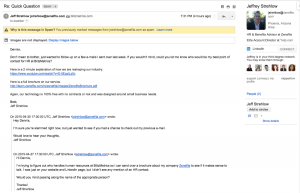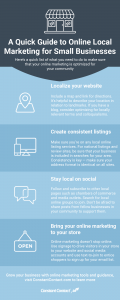Google Ads Trademark Rules Change Giving Agencies A Headache
Google has updated its Ads Trademarks policy in some countries to become more consistent worldwide. The company said in a letter to marketers that the changes will likely influence how it investigates the trademarks brands own and have on file. These trademarks run in text ads on the Google Search Network.
The changes listed in the drop-down menu under “Resellers and information site eligible regions” aim to bring Google’s policy further in line with laws governing fair or referential use of trademarks for the purpose of providing consumers with information about products and services. The policies may have been in place for years, but a page on the company’s website specifically points to “Trademarks as keywords”, and the fact that Google will not “investigate or restrict trademarks as keywords” concerns some.
Google’s changes are similar to the ones Bing recently made, said Jonathan Kagan, senior director of search and biddable media at Cogniscient Media, who received his notice earlier this month.
“At one time I was able to prevent anyone from using my trademarked name in their ad,” Kagan said. “Now I can only prevent direct competitors. Indirect competitors such as aggregators can now use the trademarks, which has a negative trickle-down impact on the cost per click for my brand terms.”
Kagan’s concerns point to competitor bidding and whether or not it will cause the cost per click for brands in saturated markets to become volatile.
The update in policy, which is already active in the U.S., means advertisers may use a trademark term in the text of an advertisement if they resell the manufacturer’s products, offer compatible components or parts, or provide information about the goods and the services related to the trademarked term.
Meeting the policy guidelines for retailers means the products or the services must be the seller’s primary focus and available for purchase from the ad’s landing page.
Site that offer information about the products or the services also must primarily focus the ad’s landing page on the products or the services to provide informative details related to the trademarked term.
During the next several months, Google will begin applying its current reseller and informational site policy it already enforces in several regions. The new countries include Japan, Germany, France, Portugal, and Spain.
(29)






